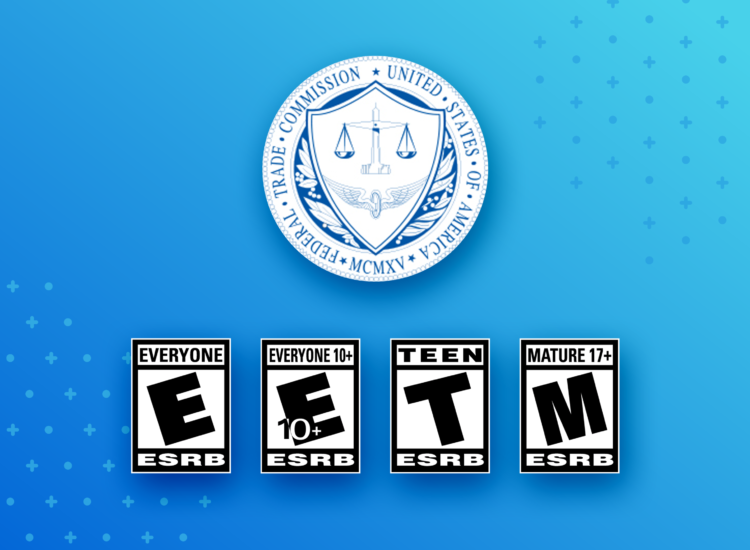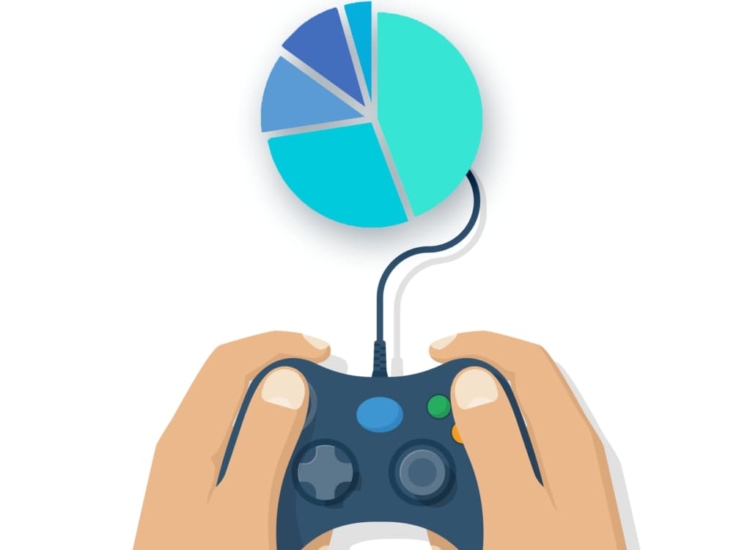ESRB Blog

Ratings Awareness and Use Among Parents Remain High

Ending the Tug-of-War Over Screen Time in the Home
Keep up to date!
Sign up for email alerts and the latest news from ESRB.

FTC: ESRB Has Most Effective Ratings Enforcement
Did You Know?
67% of the ESRB ratings assigned to physical and console downloadable video games in 2022 were either E (Everyone) or E10+ (Everyone 10+).
Learn More on our BlogDid You Know?
84% of parents who purchase physical video games for their children are aware of ESRB ratings and 74% regularly check them before buying a game. (Source: Hart Research Associates, 2022)
Learn More on our BlogDid You Know?
Most parents consider each part (Rating Category, Content Descriptors, Interactive Elements) of the ESRB rating system to be either “very” or “extremely” important when deciding if a game or app is appropriate for their kids. (Source: Hart Research Associates, 2022)
Learn More on Ratings GuideDid You Know?
Industry guidelines, which are enforced by the ESRB, prohibit the inappropriate target marketing of Mature-rated games.
Learn More about Principles and GuidelinesDid You Know?
ESRB has an enforcement system which allows for the imposition of sanctions, fines (including fines up to $1 million), and corrective actions on publishers for non-compliance with its guidelines.
Learn More about Rating ProcessDid You Know?
According to the U.S. Federal Trade Commission 87% of kids under the age of 17 are turned away when trying to buy an M-rated game at retail.
Learn More on our BlogDid You Know?
The late U.S. Supreme Court Justice Antonin Scalia wrote: “This [ESRB rating] system does much to ensure that minors cannot purchase seriously violent games on their own, and that parents who care about the matter can readily evaluate the games their children bring home.”
Learn More at supremecourt.govDid You Know?
The E (Everyone) rating was originally called K-A (Kids to Adults) but was changed in 1998.
Learn More in History of ESRBDid You Know?
The ESRB rating system has three parts – Rating Categories, Content Descriptors and Interactive Elements, the latter of which were introduced in 2013.
Learn More on Ratings GuideDid You Know?
Introduced in 2008, Rating Summaries provide greater detail about the content in physical games rated by the ESRB, and are exclusively available on this website or the ESRB mobile app by conducting a title search.
Learn More on Ratings GuideDid You Know?
ESRB uses more than 30 different Content Descriptors to help communicate what’s in a game.
Learn More on Ratings GuideDid You Know?
The FTC considers the ESRB to have “the strongest self-regulatory code” among media rating systems in the U.S. and has confirmed that retailers maintain a high store policy compliance rate.
Learn More on our BlogDid You Know?
Founded in 2013 by many of the world’s leading video game rating authorities, the International Age Rating Coalition (IARC) administers the first globally streamlined age classification process for digital games and mobile apps that respects the unique cultural norms of each region.
Learn More at globalratings.comDid You Know?
In 1999 ESRB Privacy Online (now called ESRB Privacy Certified) launched its certification program and was sanctioned by the FTC as a “Safe Harbor” under Children’s Online Privacy Protection Act (COPPA).
Learn More on privacyDid You Know?
More than 70% of parents would be more comfortable allowing their children to download and play a game certified by ESRB Privacy Certified (Source: Hart Research Associates, 2018).
Learn More on privacyDid You Know?
It’s never too late to have “the conversation” with your kids about what, when, and how they can play!
Learn More on Family gaming guideDid You Know?
Activating parental controls on your children’s video game devices helps you enforce house rules, such as limiting play time, blocking games with certain ESRB ratings, and managing in-game spending.
Learn More on Parental controls


